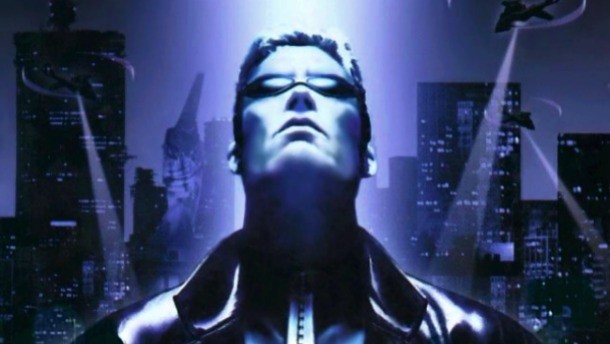How The Original Deus Ex Changed The Face Of Gaming

In the early ‘90s, id Software flipped the gaming industry on its side when it popularized the first-person shooter with Doom and Wolfenstein 3D. Now shooters are one of the most common video game genres on the market, delivering everything from high-intensity shootouts like Call of Duty to thought-provoking stories like BioShock and even sprawling loot-fests like Borderlands. The diversity of today’s first-person shooter market is due – in large part – to the inventive trailblazing of the original Deus Ex. But to better understand the impact of Ion Storm’s original shooter/RPG hybrid, you have to time travel back to the beginning of its development, in the early ‘90s.
In 1993, burnt out on fantasy and science-fiction tropes, producer Warren Spector decided that he wanted to design a game set in the real world and started to draw up a design document for a game he called Troubleshooter. Unfortunately, Spector was working for Looking Glass Studios, which didn’t have the budget to fund the kind of game that Spector dreamed of making.
In 1997, as Looking Glass Studios continued to face financial troubles, Spector and his team were laid off from their jobs. Fortunately, John Romero – flush with cash from the Doom and Quake series – was happy to let Spector and his team join his new company, Ion Storm.
Spector’s team set up a new office in Austin and began working on their dream project in August 1997, hoping to release the game by Christmas 1998. Unfortunately, the Deus Ex’s development was so troubled that it would take another two years, and wouldn’t hit the market until Summer 2000.
In a postmortem on the game inside the November 2000 issue of Game Developer Magazine, Spector talked about why his team faced so many design challenges. “I put together two groups of people with differing philosophies – a traditional RPG group and an immersive sim group. We were making a game designed to bust through genre boundaries, and I thought a little competition and argumentation would lead to an interesting synthesis of ideas. I thought I could manage the tension between the groups and that the groups and the game would be stronger for it.”
Watch us play the original Deus Ex with Epic Mickey 2's producers Raul Ramirez, and Warren Spector
Sadly, Spector’s plan didn’t work and the two teams immediately started causing more conflict, stalling the game-development process. There was so much tension between the two groups that Spector had to name the two teams “Design Team 1” and “Design Team A,” because neither group would concede to being called “2” or “B.”
In spite of Deus Ex’s long gestation and troubled studio culture, an impressive game started to take shape. The game was no longer set in the modern day, but something more inventive began to take shape. Inspired by real-world conspiracy theories and shows and movies like The X-Files and Men in Black, Ion Storm began to envision a sci-fi adventure that would wrap together cultural elements such as Area 51, CIA drug trafficking, and even the John F. Kennedy assassination.
As a shooter, Deus Ex took elements from other popular shooters of the day such as Dark Forces, System Shock, and GoldenEye 007. But where most shooter developers were focused on improving visuals and working up large arsenals of weapons for players to cause havoc with, Ion Storm was hoping to break industry conventions and deliver a game that was part RPG, part first-person shooter, and part adventure game.
Of course, Deus Ex wasn’t the first shooter to break this mold. Games like Half-Life had already experimented with telling meaningful stories in first-person. System Shock has played with non-linear gameplay and environmental puzzle solving. And Thief: The Dark Project had tested first-person stealth gameplay. Deus Ex, on the other hand, did all of this and more.
When Deus Ex released in June of 2000, it was clear that Ion Storm’s troubled three-year development had been worth the effort. Deus Ex received over 30 "best of" awards in 2001 alone, and was praised for its immersive world full of open-ended game design that let players approach each challenge in a number of different ways.
A few year’s after the first game’s release, Ion Storm followed up their success with Deus Ex: Invisible War, but that title failed to recapture the magic of the original game. Sadly, Ion Storm closed its doors only a few years later, but the pillars of the original game are alive and well today. Eidos-Montreal continues to shepherd the series into the future, and its work on Deus Ex: Human Revolution helped bring the franchise back into popularity. You can read about how the studio is continuing to polish the stealth, action, and RPG elements of the series in the most recent issue of Game Informer magazine.
For more details about Deus Ex: Mankind Divided, check out our month of online content, where we feature interviews with the team, explore the various factions of the Deus Ex universe, and ask important questions like, why do people get augmented?

Get the Game Informer Print Edition!
Explore your favorite games in premium print format, delivered to your door.
- 10 issues per year
- Only $4.80 per issue
- Full digital magazine archive access
- Since 1991










